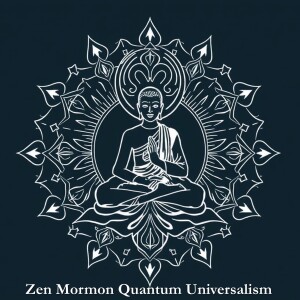
Sunday Jun 08, 2025
Paradox as Epistemological Framework: The Function of Contradiction in ZMQU's Approach to Knowledge
Abstract: This analysis examines how paradox functions as a fundamental epistemological framework within Zen Mormon Quantum Universalism (ZMQU) as demonstrated in "The Book of Cosmic Abundance." The chapter's deliberate employment of paradoxical constructions—such as the unity of knower and known, the complementarity of scientific and contemplative knowing, and the simultaneity of individual embodiment and cosmic extension—reveals ZMQU's distinctive approach to knowledge acquisition and validation. These paradoxes serve essential epistemological functions: deconstructing false dichotomies between material/spiritual and scientific/religious domains, acknowledging the inherent limitations of conceptual frameworks, establishing a dialectical path to higher understanding through complementary perspectives, and fostering epistemological humility appropriate to cosmic contemplation. Rather than representing a stylistic choice, the chapter's paradoxes constitute ZMQU's epistemology in action—a necessary response to the inherent challenge of integrating Zen Buddhism's non-conceptual direct experience, Mormonism's continuing revelation, and quantum physics' counter-intuitive empirical findings. The analysis concludes that ZMQU employs paradox not to reconcile contradictions but to transcend binary thinking entirely, offering an epistemological approach where multiple knowledge pathways access different aspects of a reality that fundamentally exceeds conventional categorization.
No comments yet. Be the first to say something!